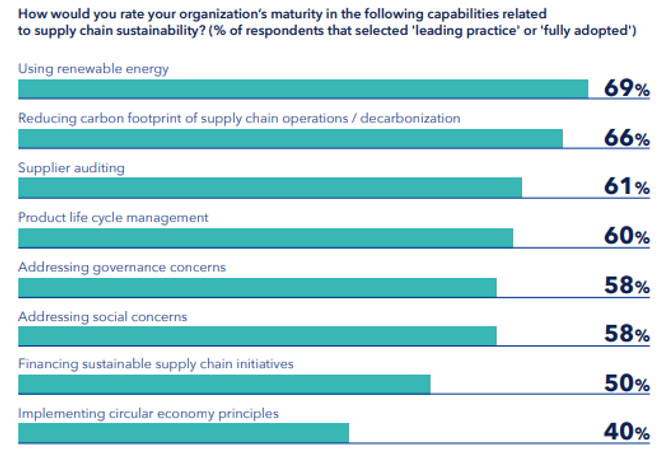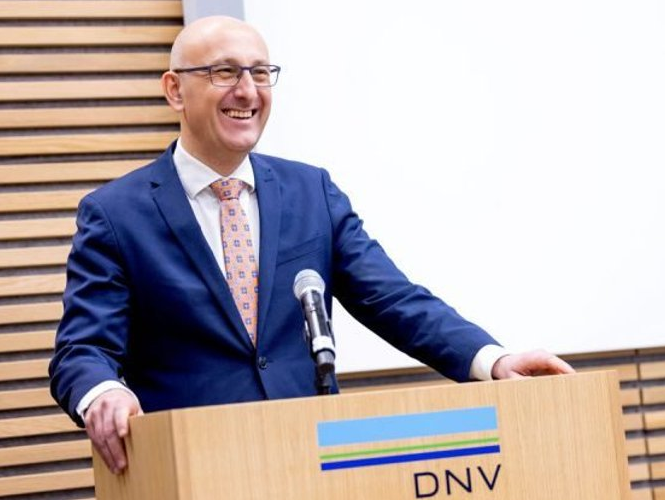A new report by DNV reveals sustainability tops the list of priorities for companies in the food and beverage industry, amid digitisation and regulations.
The food and beverage sector faces mounting pressure to transform its supply chains amid a rapidly changing global landscape.
A new report by DNV, an independent assurance and risk management provider, reveals that sustainability now tops the list of priorities for companies in this industry, ahead of cost efficiency and regulatory compliance.
The report, ‘The Future of Sustainable Food Supply Chains: Spotlight on Europe’s Food and Beverage Industry,’ outlines the challenges and opportunities for businesses striving to balance environmental responsibility, operational efficiency and compliance with evolving regulations.
The role of digital transformation and regulation
Food systems are responsible for a third of global carbon emissions, yet the industry lags in adopting key technologies to address these challenges.
DNV highlights the importance of digital transformation as a catalyst for change. Tools like supply chain traceability and risk management platforms are essential for enabling transparency, but success depends on accurate, verifiable data shared seamlessly across the supply chain.
Michele Munaretti, Supply Chain Manager at DNV, explains: “By attaching connected sensors to goods and materials throughout the supply chain, the IoT can provide much-needed visibility into both sustainability and cost issues.”
This digital approach is becoming critical as regulations tighten.
In Europe, directives like the Corporate Sustainability Due Diligence Directive (CSDDD) and the Packaging Waste Directive are forcing companies to address sustainability comprehensively, from carbon emissions to human rights issues.
Businesses must adopt holistic strategies that integrate technology with compliance to remain competitive.

Consumer and retailer expectations
Consumer behaviour is another major driver of change. Today’s shoppers demand sustainable, transparent production practices and are often willing to pay more for goods that align with their values.
Retailers, particularly those with private-label brands, are increasingly collaborating with suppliers to ensure these expectations are met.
Nicola Somenzi, Head of Responsible Sourcing at Ferrero, illustrates the complexity of this endeavour.
“Once supply chain traceability and visibility are ensured, environmental and social KPIs can be measured,” Nicola comments. “But it all starts from identifying and knowing the position of your farmers and their plot of land.”
Ferrero’s supply chain spans thousands of farmers in remote regions, necessitating innovative solutions like satellite imagery to monitor compliance with sustainability standards.
Similarly, Barilla leverages technology to support sustainable farming practices. From helping farmers reduce fertiliser and water usage to promoting efficient techniques, the company aims to make agriculture more eco-friendly.
However, adoption is not always straightforward.
“Farmers are often reluctant to accept this,” says Leonardo Mirone, Group Purchasing Director and ESG Leader at Barilla.
“But, as costs for raw materials like fertiliser increase, sustainable approaches become more attractive.”
Collaboration for a sustainable future
Bolton Food offers another example of proactive transformation.
Known for its canned tuna products, the company partners with NGOs such as Greenpeace and WWF to address environmental concerns, while also working with Oxfam on social issues within its supply chain.
Luciano Pirovano, Bolton Food’s Chief Sustainability Officer, highlights the value of partnerships, saying: “We have a motto in Bolton Food, which is ‘Partnership is our leadership.’”
To gain more control, Bolton Group acquired its primary tuna supplier, Tri Marine. This vertical integration allows the company to monitor sustainability practices closely, even in remote locations such as the Solomon Islands.

The road ahead
Despite progress, the food and beverage sector has work to do. While nearly 70% of businesses prioritise digital transformation as a strategy, adoption rates for technologies like IoT and blockchain remain below the cross-sector average.
These tools hold immense potential to boost efficiency, improve traceability and reduce environmental impacts.
As Geir Fuglerud, CEO of Supply Chain & Product Assurance at DNV, concludes: “The food and beverage industry faces an era of significant transformation as sustainability within the entire supply chain becomes an urgent priority.
“This report is a blueprint for companies to address the challenges ahead, leveraging digital innovation to balance cost-efficiency and environmental responsibility.”
By embracing a combination of digital tools, regulatory compliance and collaboration, the sector has the opportunity to create lasting change. The future of food supply chains will hinge on the ability to innovate and adapt.



